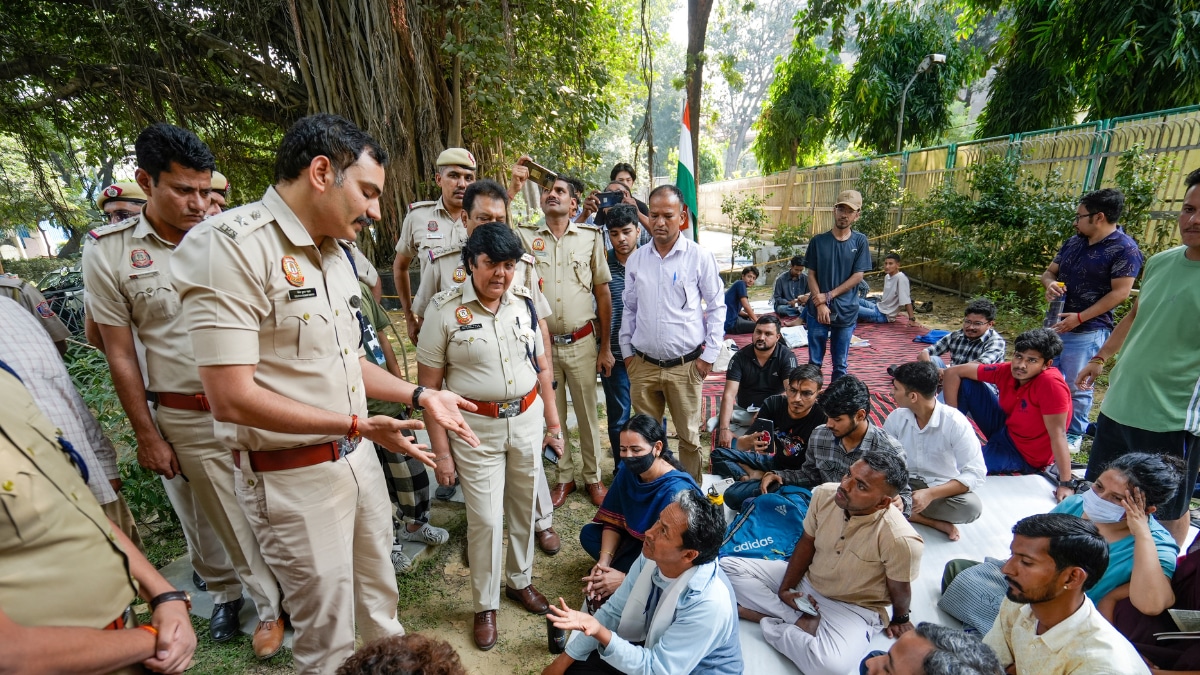Climate activist Sonam Wangchuk has been leading an indefinite hunger strike in Delhi since October 6th, demanding the inclusion of Ladakh in the Sixth Schedule of the Constitution. This demand, along with the broader aspiration for statehood, stems from the desire to protect Ladakh’s unique cultural and environmental identity and ensure its equitable development. This article delves into the ongoing struggle, the concerns of the protesters, and the reasons behind their demand for special status.
The Sixth Schedule: A Quest for Protection and Empowerment
The Sixth Schedule of the Constitution offers a unique framework for the governance of tribal areas in Northeast India. It establishes autonomous district councils with powers to govern on matters like land, culture, education, and resources. Wangchuk and his supporters believe that such a mechanism is crucial for safeguarding Ladakh’s distinct identity, culture, and environment, threatened by the influx of outside forces.
Addressing Concerns of Exploitation
The protesters argue that the current administrative structure does not adequately protect Ladakh’s interests. They highlight concerns over land alienation, resource exploitation, and the erosion of local governance. The Sixth Schedule, they believe, can provide a legal framework for protecting local rights and resources.
Safeguarding Ladakh’s Fragile Ecosystem
Ladakh, with its high-altitude terrain and unique ecosystem, faces numerous environmental challenges. The protesters fear that the lack of special status leaves Ladakh vulnerable to unsustainable development and resource exploitation, jeopardizing its fragile ecosystem. The Sixth Schedule, they claim, offers a means of safeguarding this delicate environment.
Why Ladakh is Seeking Statehood
The demand for inclusion in the Sixth Schedule is intertwined with the larger aspiration of achieving statehood. This demand originates from the perception of Ladakh as a region that is underserved and lacking representation in the larger political system.
Insufficient Political Representation
The protesters feel that Ladakh’s political voice remains weak in the current structure. Despite facing distinct challenges, Ladakh is represented as part of Jammu and Kashmir in the Union Parliament. Statehood, they argue, would give them greater autonomy and control over their governance.
A Need for Dedicated Infrastructure
Ladakh suffers from inadequate infrastructure, lacking adequate resources in sectors like healthcare, education, and transportation. Statehood, according to the protesters, is necessary to address these shortcomings and attract much-needed investment.
Recent Protests and Crackdowns
Sonam Wangchuk’s hunger strike and the accompanying protests have escalated the demands for recognition and autonomy.
Wangchuk’s Hunger Strike
The hunger strike serves as a powerful symbolic gesture, underscoring the desperation felt by Ladakh’s people. Wangchuk’s dedication to the cause highlights the gravity of their struggle for representation and autonomy.
Crackdowns by Delhi Police
The recent detentions by Delhi Police of Wangchuk’s supporters raise concerns about the suppression of peaceful protests. The protesters argue that their actions are justified, expressing their frustration with the government’s perceived indifference towards their concerns.
Conclusion
The movement for Ladakh’s inclusion in the Sixth Schedule and the broader aspiration for statehood are fueled by a desire for self-determination, environmental protection, and a greater share of political power. The protesters’ peaceful efforts, including Wangchuk’s hunger strike, are testaments to their conviction. This case calls for a more nuanced understanding of the demands from peripheral regions, ensuring that the concerns of diverse communities are addressed with sensitivity and a commitment to equitable development.
Take Away Points
- The Sixth Schedule: This provision in the Indian Constitution offers a means for safeguarding the cultural and environmental interests of tribal areas. Ladakh’s demand for inclusion in the Sixth Schedule reflects a desire to protect its unique identity and resources.
- Statehood as a Goal: The broader objective of statehood stems from a desire for greater representation, autonomy, and improved access to resources.
- The Protests: Sonam Wangchuk’s hunger strike and the accompanying protests underscore the gravity of the concerns and the need for urgent action.
- The Crackdowns: The Delhi Police’s actions raise questions about freedom of speech and peaceful assembly.
- Understanding the Demand: It is essential to recognize the underlying concerns and aspirations driving the demands for special status and to seek inclusive solutions that respect diversity and autonomy.




